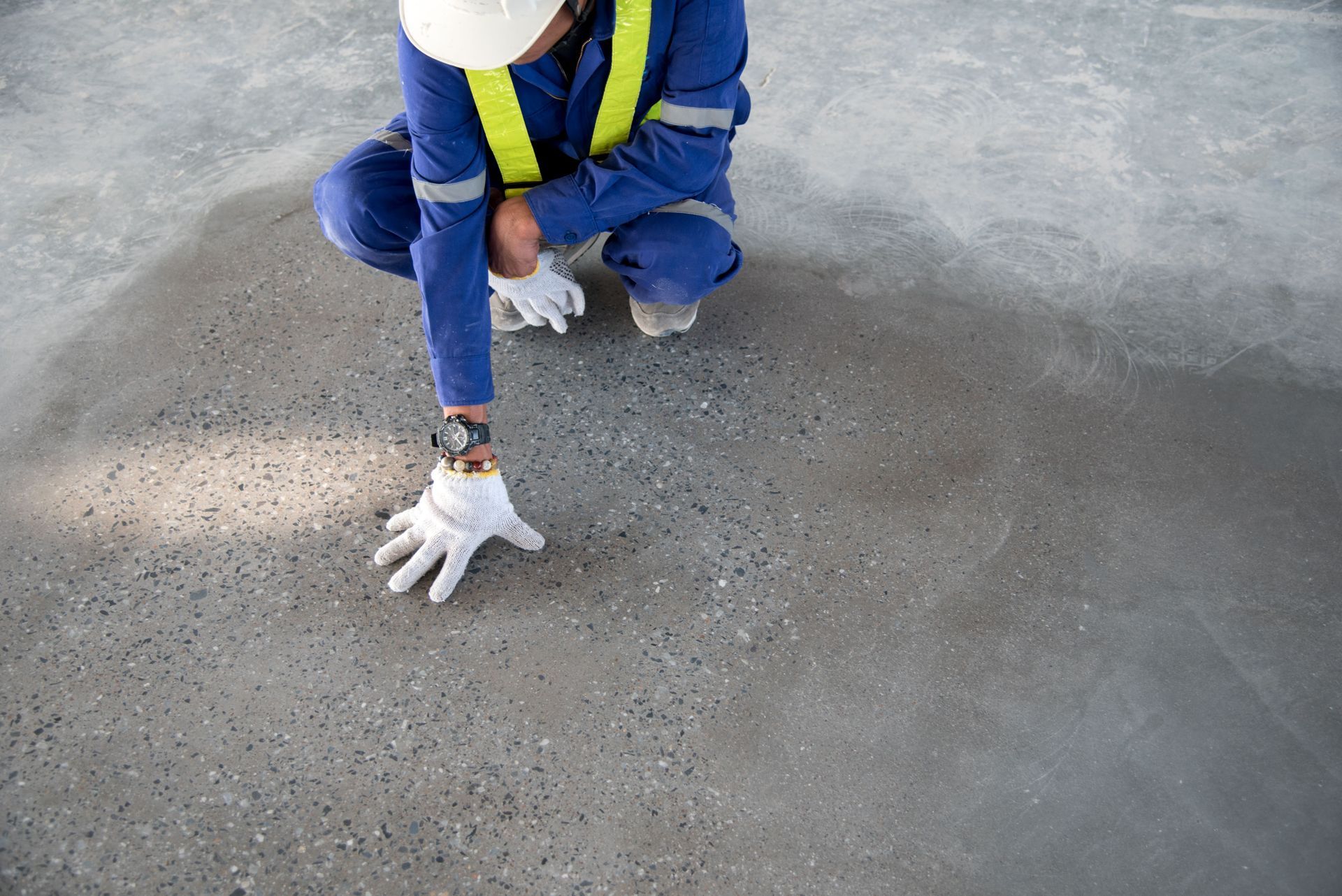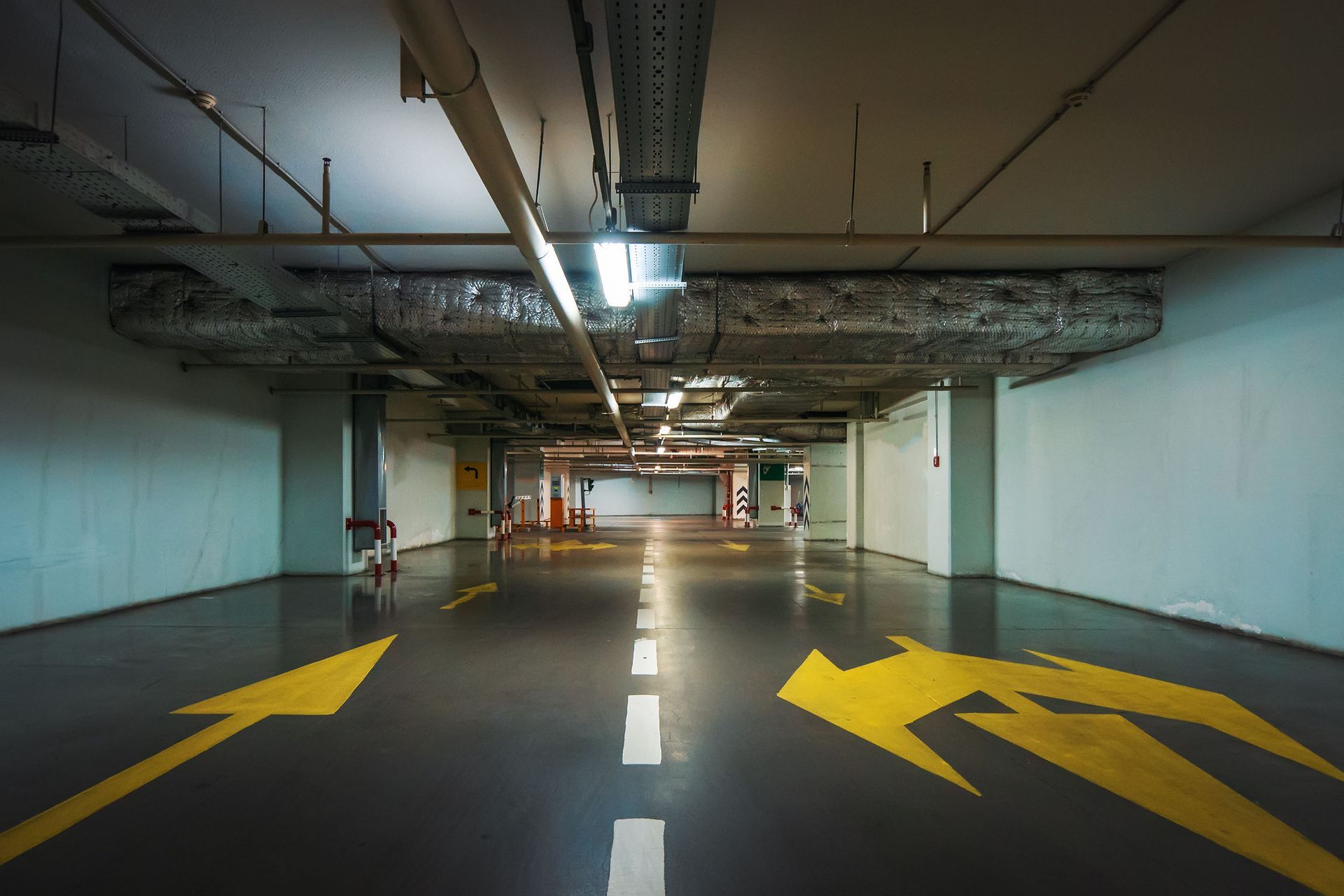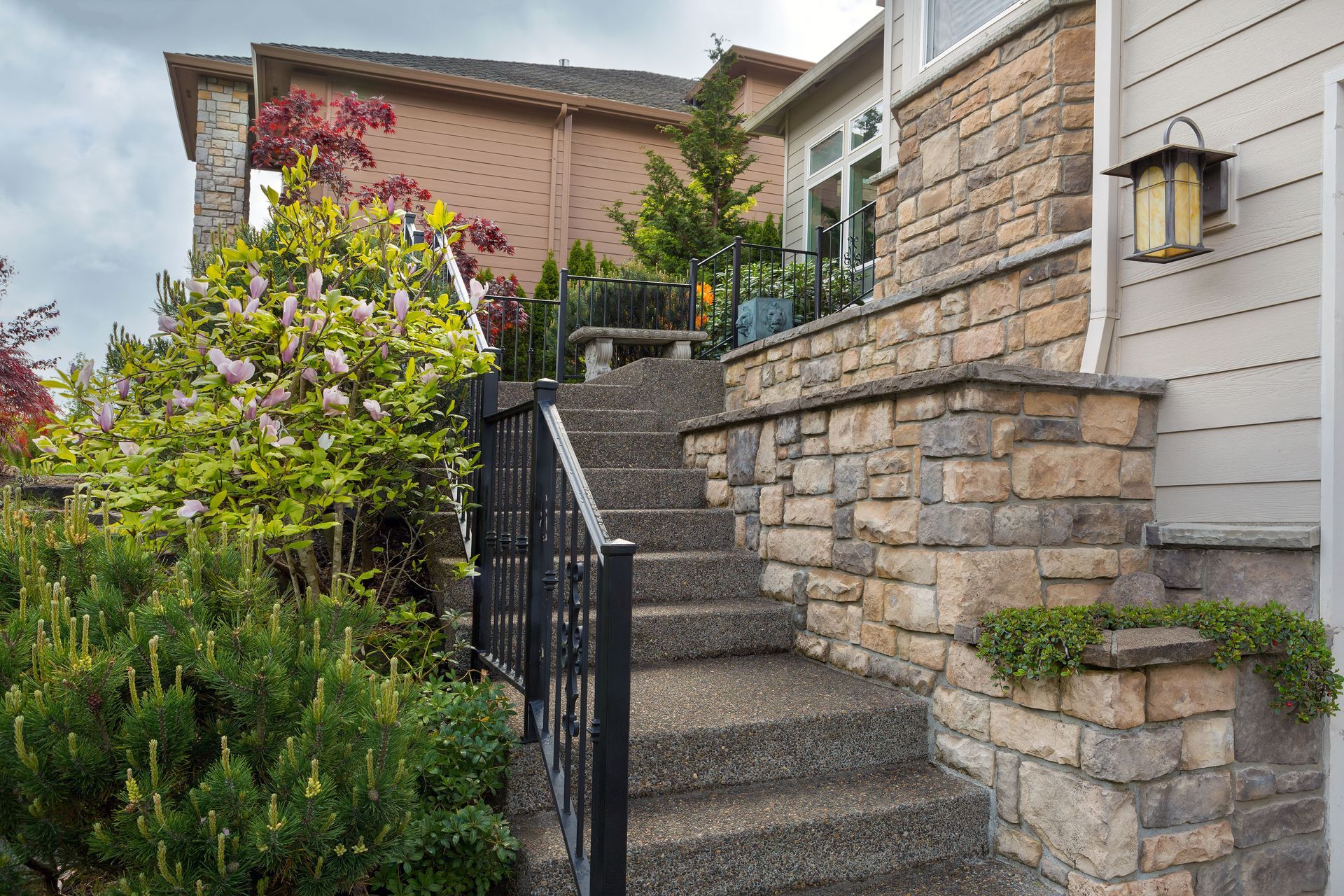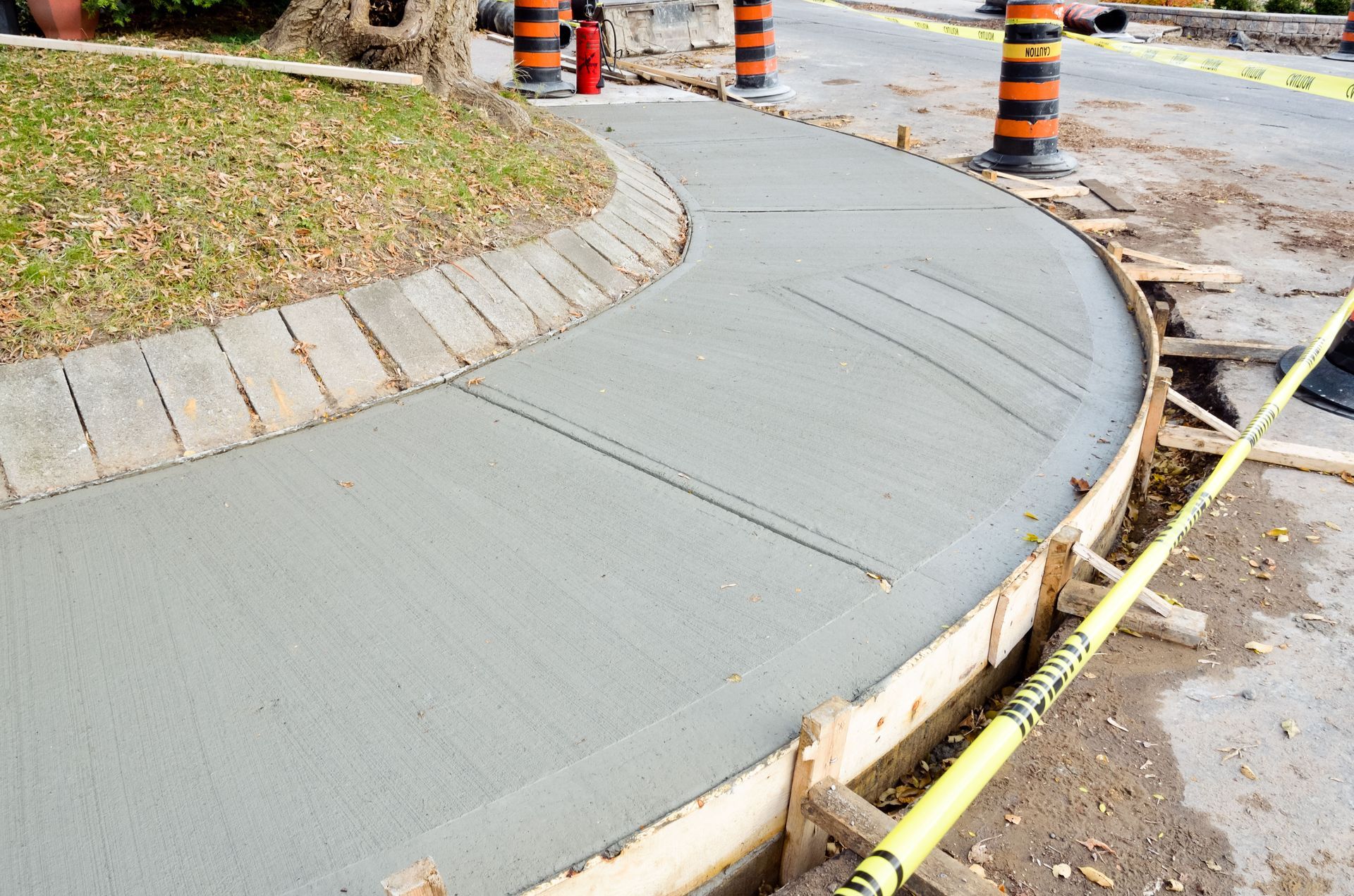5 Questions to Ask Your Contractor Before Pouring a Concrete Patio
The decision to install a concrete patio is both exciting and significant. Not only does it enhance the aesthetic appeal and functional space of your outdoor area, but it can also increase the value of your home. However, before embarking on this project, it's crucial to engage with your contractor thoroughly. Here we outline some critical questions to ensure you're well-prepared and informed about the process, costs, and outcomes. Understanding these aspects will make the experience smoother and help you achieve the desired results for your outdoor living space.
1. What is the estimated timeline for the project?
When planning a concrete patio installation, understanding the estimated timeline is essential. Each phase of the project, from initial site assessment to design finalization, involves specific tasks that require careful coordination. A typical timeline may extend from a few days to several weeks, depending on the project's complexity and environmental conditions. Discussing this timeline upfront will help you manage your expectations and schedule. Moreover, this knowledge allows you to synchronize the patio project with any other home improvement activities you might be undertaking.
While the timeline provides a useful framework, it's also important to consider potential delays. Factors like adverse weather or unexpected site conditions can extend the project's duration. A thorough discussion about possible delays with your contractor can paint a clearer picture of the real-time investment required. Furthermore, by understanding these variables, you can prepare contingency plans that minimize disruptions to your daily routine. Your contractor's ability to adapt and overcome such challenges should be a key consideration.
In addition to the timeline, inquiring about your contractor's history with meeting deadlines can be revealing. Checking references and examining past projects gives insight into their reliability and professionalism. It's helpful to know if they have a track record of completing projects on time. This facet of contractor evaluation can significantly impact your level of trust and comfort as you move forward. Ultimately, knowing how timelines are handled will give you a sense of security and allow for better project planning.
2. Can you provide a detailed cost estimate?
A detailed cost estimate is the foundation of any successful project. Understanding what’s included in the quote will provide clarity on what to expect financially. Ensure that your contractor provides a breakdown of all potential expenses, such as materials, labor, and equipment. Hidden fees can significantly impact your budget, so it’s crucial to clarify these elements early in the planning stages. Knowing these details can also help you explore adjustments or modifications to fit your budget.
Managing unforeseen expenses is another key aspect to discuss with your contractor. Unforeseen complications like soil integrity issues may arise, potentially adding to the total cost. Establish a pre-agreed system or buffer for handling such occurrences to prevent strains on your budget. Open communication regarding potential extra costs will help you remain financially prepared throughout the project. Clear terms on how these situations will be handled can prevent financial stress and disagreements.
Additionally, clear payment schedules provide a structured framework for project financing. Discuss specific milestones and payment terms with your contractor to avoid confusion. By knowing these milestones, you can plan your finances more efficiently to ensure timely payments. This discussion can also offer peace of mind, knowing that financial expectations are understood by both parties. It is also beneficial to inquire about any available cost-saving alternatives that might fit better with your financial constraints.
3. What is your experience with similar projects?
Experience is a crucial criterion in selecting the best contractor for your concrete patio project. Inquire about the number of similar projects they have completed, which can be indicative of their expertise. Contractors with a robust portfolio of past projects have typically encountered and mastered various challenges. This experience translates into smoother, more efficient project execution. Knowing that your contractor has ample relevant experience can bolster your confidence in their ability to deliver quality results.
Requesting references or examples of previous work allows you to assess the contractor's proficiency and style. Viewing a portfolio or speaking with past clients provides valuable insights into the contractor's strengths and weaknesses. According to HomeGuide, newly poured concrete takes around 30 days to fully cure, though it becomes strong enough to hold people, pets, and furniture much earlier. Collecting these references gives you an understanding of their approach and customer satisfaction levels. This process also helps you form realistic expectations and avoid potential disappointments.
Finally, delving into challenges encountered in past projects can inform you of potential pitfalls. Understanding the strategies your contractor employs to address common and complex issues is critical. A conversation about handling complexities and compliance with necessary certifications assures you of their preparedness for your project. Ensuring the contractor is well-equipped to manage unique project elements secures a seamless workflow. This knowledge can significantly reduce the risk of issues arising mid-project and ensures adherence to local standards and regulations.
4. What materials do you recommend?
The choice of materials influences not only the aesthetics but also the durability of your patio. Discuss with your contractor the different concrete mixes available and their respective advantages. Some mixes offer increased resistance to weather elements, while others enhance the finish. Based on your area’s climate and intended patio use, some materials may be more suitable than others. An informed decision regarding materials ensures that your patio will not only look great but also stand the test of time.
Consideration of environmental impact highlights the importance of eco-friendly options. Inquiring about environmentally sustainable practices and materials can align your project with your ethical standards. Contractors may suggest recycled or reduced-carbon-emission materials that maintain quality while lessening environmental effects. Making environmentally considerate choices supports sustainability and demonstrates responsibility. It’s beneficial for both your project and the broader ecosystem surrounding it.
Reinforcement materials complement concrete's inherent strength. Your contractor should clearly explain the use of rebar, mesh, or fibers to enhance the patio's durability and longevity. Request samples to help you visualize how different components contribute to your project's overall look and feel. Understanding reinforcement options assures you of a robust structure capable of withstanding environmental pressures. Evaluating how materials influence ongoing maintenance needs allows you to plan for long-term care proactively.
5. What is involved in site preparation?
Thorough site preparation is crucial for the successful implementation of a concrete patio. It begins with an accurate assessment of the site’s current condition. Identifying any obstacles, such as existing structures or uneven terrain, is crucial for planning. Factors like soil stability and existing drainage need to be addressed to avoid complications. Ensuring the site is adequately prepared sets a strong foundation for smooth project execution.
Addressing drainage is an essential consideration when pouring concrete patios. Your contractor should strategize on how to manage water flow and avoid pooling on the surface. Proper drainage ensures the patio's longevity and prevents issues like water damage or soil erosion. Discuss their approach to water management, and consider incorporating features such as slopes or drainage channels. Proper planning for drainage will greatly contribute to the structural integrity of the patio.
Understanding the necessary permits is crucial to prevent legal complications arising from non-compliance with local regulations. Determine which permits are required and clarify who will be responsible for obtaining them. Your contractor’s commitment to securing all needed documentation exhibits their dedication to a smooth project flow. Proper permits ensure compliance with legal standards, contributing to the project’s long-term success. Assessing the extent of site preparation services provided by the contractor ensures transparency and clarity regarding what additional arrangements you might need to make.
Pouring a concrete patio is a significant endeavor that requires precise planning and execution. By asking your contractor these essential questions, you can gain a comprehensive understanding of the process and make informed decisions throughout the project. Thoughtful preparation and clear communication will ensure your new patio meets your expectations and provides enjoyment for years to come. Engaging with experienced professionals leads to better project outcomes. Take the time to understand each facet of the work to achieve the perfect patio for your home. Be sure to reach out to Peter LaLicata & Son Cement Contractors Inc today for more information on our professional concrete contractor!





Share On: